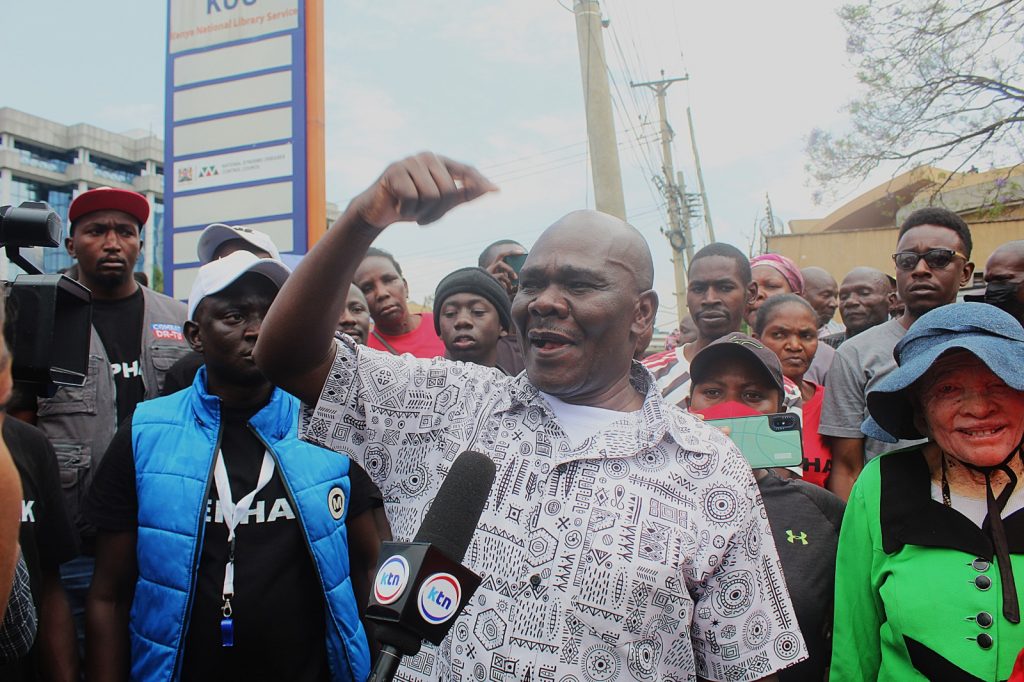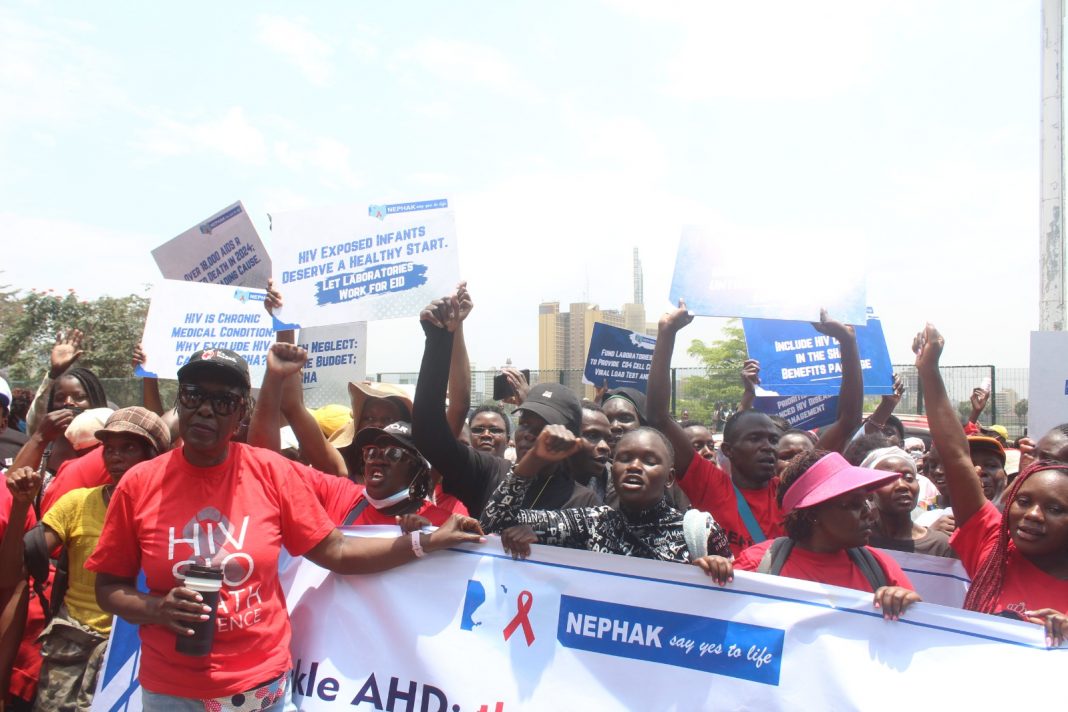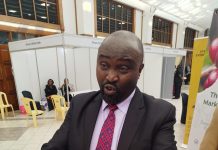By Gift Briton and Dickens Okinyi
Under the harsh mid-morning sun, members of the National Empowerment Network of People Living with HIV and AIDS in Kenya (NEPHAK) marched to government offices, demanding that HIV care and diagnostic services be covered under the new Social Health Insurance Fund (SHIF).
“Testing has collapsed in this country,” said Nelson Otuoma, the Executive Director of NEPHAK, whose organization represents 1.4 million Kenyans living with HIV. He explained that government laboratories conducting CD4 counts and viral load monitoring have been largely non-functional for months, following a decline in donor support.
Without those tests, patients face a major obstacle: while antiretroviral drugs (ARVs) are available, they cannot be dispensed safely without proper monitoring. “Facilities that once provided these tests free of charge now ask patients to pay between 500 and 2,000 shillings,” Otuoma said. “Many people cannot afford this. Which means they cannot collect their ARVs.”
Kenya requires Kshs.13.5 billion in the 2025/2026 financial year to maintain its HIV response, according to the Ministry of Health. While ARVs remain donor-funded, the support systems around them, including laboratory services, reagents, and monitoring, are breaking down. Health economists have long warned that heavy reliance on foreign donors for HIV programming leaves Kenya vulnerable when aid shrinks or shifts.
Otuoma said NEPHAK wants immediate measures to protect patients: “We don’t want to fight with facilities. Can the Ministry of Health provide a waiver for these user fees? Can SHIF cover HIV tests? Excluding people living with HIV from SHA is a form of stigma and discrimination, and it goes against the Kenyan constitution.”
He added that the group has given the Ministry of Health two weeks to respond to their demands, warning that failure to act could lead to a nationwide demonstration involving representatives from all 47 counties.

Anne Okaro, the National Chair of the Kenya Network of HIV-Positive Teachers (KENEPOTE), noted that stigma continues to shadow patients. “It is unfortunate that people living with HIV have to come to the streets to be heard, and yet they are taxpayers,” she said. Walking with placards declaring your HIV status resurfaces discrimination. Tomorrow, it will be a different story for some because of stigma.”
Representing over 3,000 teachers living with HIV, Okaro said her members fully contribute to the Social Health Authority (SHA) through mandatory salary deductions, yet HIV services remain excluded. “Teachers are 100 percent compliant in paying SHA. So why should we pay again from our pockets to access HIV services? Yes, we get ARVs free, but that is not enough. We are also managing tuberculosis, diabetes, kidney disease, and hypertension. What is killing us now is mental health. Let us be handled like human beings.”
Petitions were also presented to different government agencies. Outside NASCOP offices, Patricia Ochieng highlighted the deteriorating quality of HIV services. “People living with HIV deserve the quality of care outlined in the guidelines on the minimum package of care, including laboratory services and not just the issuance of ARVs,” she said. Ochieng called for urgent action to resolve laboratory stockouts and requested waivers on user fees for the most vulnerable populations.
In Nairobi, Edith Nyambura, the Nairobi Chapter Female Representative, NEPHAK submitted another petition at the National Syndemic Disease Control Council (NSDCC). She proposed a National People Living with HIV Leadership Summit to address financing and community engagement, and raised questions about data reliability.
“We have come across reports showing viral load status between March and August 2025, yet during that time, there were no laboratory services,” she said.
Nyambura also demanded documentation on HIV-sensitive social protection to ensure vulnerable patients can access cash transfer schemes.
“We have people living with HIV who are facing hunger and starvation,” she noted. “They should benefit from the government’s social protection programs just like other vulnerable groups.”
SHA was set up to replace NHIF and deliver fairer health financing, but HIV testing was left out, officials arguing donor support would cover the gap. As donor funding wanes, patients now face high out-of-pocket costs. NEPHAK delivered petitions to three agencies and gave the government two weeks to respond before launching a nationwide campaign.







